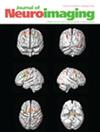Technical Considerations in the TCD Evaluation of Cerebral Circulatory Arrest in Death by Neurological Criteria
Abstract
Background and Purpose
Ancillary testing is essential for diagnosing brain death/death by neurologic criteria (BD/DNC) when clinical determination (neurologic exam and apnea testing) cannot be fully or safely performed. Transcranial Doppler ultrasound (TCD) has been recommended as an ancillary test; however, the technical descriptions have been heterogeneous. We aimed to consolidate the technical considerations related to the use of TCD as an ancillary test in the evaluation of BD/DNC.
Methods
We performed a scoping review of the available literature from inception to December 2024. Articles describing TCD as an ancillary test for BD/DNC were included using appropriate Medical Subject Headings terms. The focus was on technical details and clinimetric properties of TCD (e.g., signal quality, frequency, gate, probe location, etc.). Technical categories were curated as full-text reviews were completed.
Results
We reviewed 181 articles to extract technical descriptions of TCD under several categories. Image acquisition was divided into machine-related factors (59 studies, four questions), exam-related aspects (82 studies, 13 questions), and patient anatomical factors (19 studies, three questions). Image interpretation concerns were addressed in 50 studies (three questions). Patient-related clinical factors affecting TCD utility were addressed in 44 studies (seven questions). Legislative priorities were discussed in 19 studies; in 13 studies, authors commented on their recommendations for research priorities.
Conclusion
We found significant inconsistencies and a lack of technical details described in the literature. Next steps include a national survey of current TCD protocols for BD/DNC evaluation, and an expert consensus guidelines report on the technical use of TCD as an ancillary test.


 求助内容:
求助内容: 应助结果提醒方式:
应助结果提醒方式:


